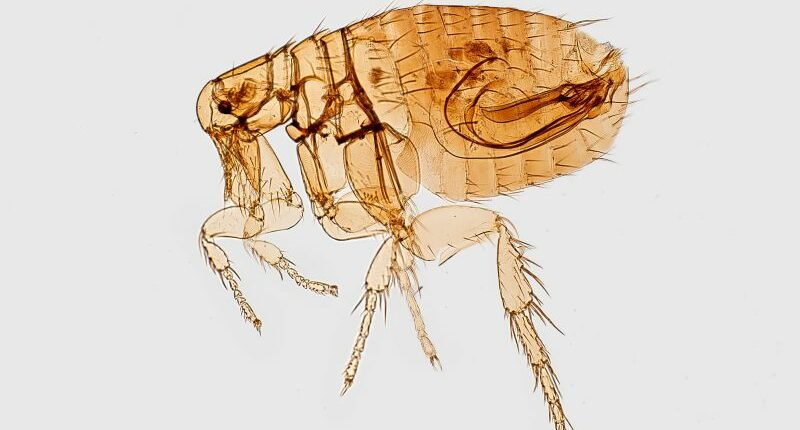Share this @internewscast.com

SOUTH LAKE TAHOE, Cali. (KTXL) — A resident of South Lake Tahoe, California, has tested positive for the plague, health officials have confirmed.
Limited information was released regarding the resident, but the El Dorado County Environmental Management Division and Public Health Division reported that the patient is receiving medical care while recovering at home.
The situation is still being investigated. It is suspected that the person got sick after being bitten by a flea while camping in the South Lake Tahoe area.
“Plague is naturally found in various regions of California, especially in higher elevation locations of El Dorado County,” stated Kyle Fliflet, El Dorado County’s Acting Director of Public Health. “It’s crucial for individuals to take safety measures for themselves and their pets when outside, particularly when walking, hiking, or camping in areas with wild rodents.”
The plague is caused by the Yersinia pestis bacterium, primarily transmitted by the bites of fleas that have the bacteria from infected squirrels, chipmunks, and other wild rodents. Dogs and cats can also bring plague-infected fleas into homes, as per health authorities. People can contract the plague from bites by infected fleas.
“Plague can be prevented by avoiding contact with wild rodents, and by keeping pets away from rodent burrows,” public health officials said.
Authorities mentioned that CHPD has been keeping an eye on rodent populations for plague activity in California and working closely with health officials. Surveillance footage from El Dorado County showed rodent activity from 2021 to 2024, revealing 41 rodents that exhibited signs of exposure to the plague bacterium. This year, four more rodents have tested positive in the Tahoe Basin, according to El Dorado County health officials.
There are three types of plague that manifest different symptoms and originate from different causes. Bubonic plague results from flea bites typically found on rodents.
Authorities said the symptoms of plague will usually show up within two weeks of exposure to an infected animal or flea, and they include fever, nausea, weakness, and swollen lymph nodes. The plague can be treated effectively with antibiotics if symptoms are shown early.
Septicemic plague, which has similar symptoms, can develop from untreated bubonic plague as well as from the handling of infected animals. Should a person with bubonic or septicemic plague go without treatment, and the bacteria reach their lungs, they can develop pneumonic plague. Like other forms of plague, a person infected with pneumonic plague may develop a fever, headache, weakness, and pneumonia, with the latter developing “rapidly.”
While bubonic and septicemic plague may take a few days to set in, the incubation period for pneumonic plague may be just over a day, the CDC reports. It’s the only form that can be spread person-to-person, and it is considered the most serious form of the disease.
El Dorado County health officials did not specify which type of plague the patient had contracted.
Regardless of the type of plague, about 90% of those infected survive with quick treatment. Untreated, “plague is nearly always fatal,” the Cleveland Clinic said.
Infected fleas are largely to blame for plague cases that occur in the U.S. today, but the handling of infected animals — like cats, rabbits, rats, mice, and squirrels, according to New York’s Department of Health — has also been known to lead to the plague.
Earlier this year, northern Arizona recorded its first pneumonic plague-related death since 2007. Health officials have not said how the Arizona resident became infected. A case of bubonic plague reported in Oregon early last year, the first in the state since 2015, was believed to be brought on by a pet cat. In recent years, Colorado has reported a cat testing positive for septicemic plague and a cat, two prairie dog colonies, and a squirrel testing positive for bubonic plague.
To avoid the plague, health officials advise against feeding squirrels, chipmunks, and other wild rodents. Should you find a sick, injured, or dead rodent, you should not touch it. You should also not let your pets play with or pick up such a rodent.
When camping, officials say you should avoid sleeping or resting near animal burrows or where dead rodents have been spotted. You’ll also want to wear bug spray with DEET on your socks or pant cuffs to reduce flea exposure. If you have to bring your pet into an area where fleas may be present, experts suggest using flea control products.
Cats are highly susceptible to the plague and can, in turn, pose a threat to humans. Should your cat become ill after interacting with a rodent, it’s recommended that you take them to a veterinarian.
If you feel ill after being in an area where plague has occurred, or is known to occur, consult a physician.









